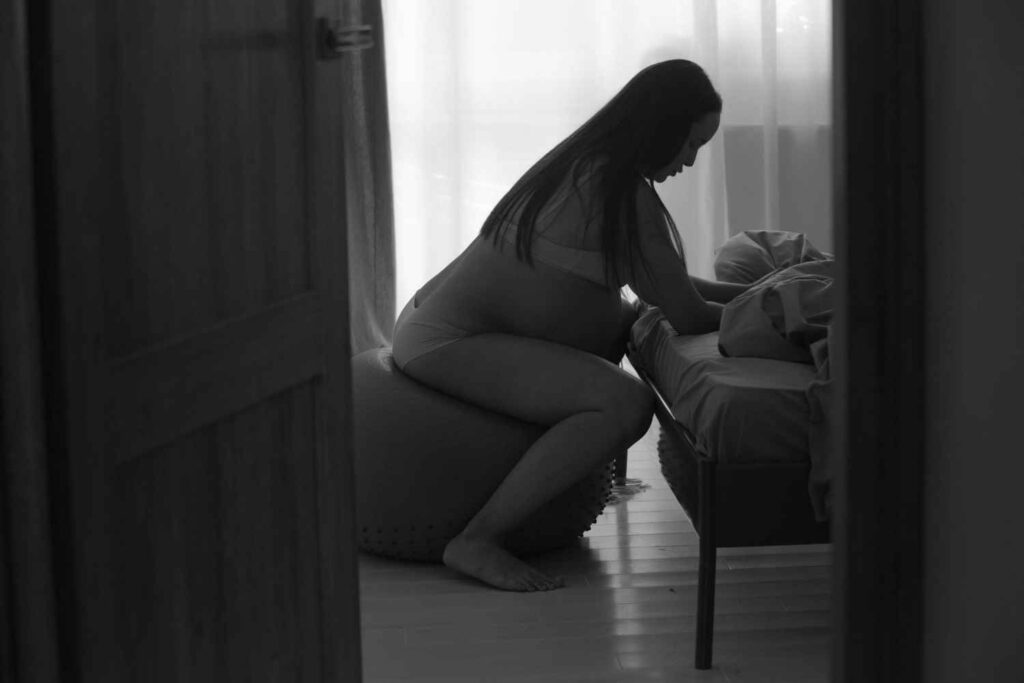Miscarriage is one of the most painful experiences a woman can go through. But when it happens more than once, it can feel heartbreaking, confusing, and even hopeless. If you’ve had two or more miscarriages, your doctor may say you’re dealing with what’s called recurrent pregnancy loss (RPL) or recurrent miscarriage. At this stage, understanding the possible causes and getting the proper recurrent miscarriage treatment is essential.
In this guide, we’ll walk you through what recurrent miscarriage means, common reasons it happens, how it’s diagnosed, and the treatment options available today. Whether you’re going through this yourself or supporting a loved one, this article will help you feel more informed and supported.
What Is Recurrent Miscarriage?
Recurrent miscarriage is defined as two or more pregnancy losses before the 20th week of pregnancy. In some cases, doctors may begin investigations after just two miscarriages, especially if you’re over the age of 35 or have other health risks.
Types of Pregnancy Loss:
- Early miscarriage: Before 12 weeks
- Late miscarriage: Between 12 and 20 weeks
- Chemical pregnancy: Very early loss, often before a pregnancy is confirmed by ultrasound
Is Recurrent Miscarriage Common?
Yes, though not widely discussed. Miscarriage itself is common, affecting about 10–15% of known pregnancies, and around 1 in 100 couples experience recurrent miscarriage.
While it can feel isolating, know that many women go on to have healthy pregnancies with the proper support and treatment.
Causes of Recurrent Miscarriage
The first step to treating recurrent miscarriage is finding out what’s causing it. But in about half of the cases, doctors can’t find a clear reason. Even then, they look into several possible causes to try and help:
1. Genetic Issues
- In about 2–5% of couples, one partner carries a genetic rearrangement (translocation) that can cause miscarriage.
Changes in the embryo’s chromosomes are the most common reason why miscarriages happen.
2. Hormonal Imbalances
- Thyroid problems, high prolactin levels, or uncontrolled diabetes may affect pregnancy.
- Polycystic ovary syndrome (PCOS) can also be linked to miscarriage risk.
3. Uterine Abnormalities
- A misshapen uterus, fibroids, or scar tissue can prevent the baby from growing properly.
4. Blood Clotting Disorders (Thrombophilia)
- Conditions like antiphospholipid syndrome (APS) or lupus can increase the chance of miscarriage due to blood clots in the placenta.
5. Immune System Issues
- Sometimes, the immune system may not respond normally and can treat the growing embryo as a problem, which may lead to a miscarriage.
6. Infections
- If infections like listeria, toxoplasmosis, or some STIs aren’t treated, they can raise the risk of miscarriage.
7. Lifestyle Factors
- Smoking, alcohol use, obesity, or high stress can also affect pregnancy.
Even if no clear cause is found, there are still many ways to support a healthy pregnancy moving forward.

How Recurrent Miscarriage Is Diagnosed
If you’ve had two or more miscarriages, your doctor may recommend a complete evaluation to identify any underlying issues.
Diagnostic Tests May Include:
- Genetic testing of both partners
- Blood tests to check hormones, autoimmune markers, or clotting problems
- Pelvic ultrasound or hysteroscopy to look at the uterus
- Karyotyping of pregnancy tissue (if available)
- Thyroid function and diabetes screening
These tests help doctors create a personalized recurrent miscarriage treatment plan.
Recurrent Miscarriage Treatment Options
The proper treatment depends on identifying the cause. Even when no apparent reason is determined, many women go on to have successful pregnancies with supportive care.
Here are the most common and effective treatment paths:
1. Lifestyle Modifications
Who it’s for: All women, mainly when no clear cause is found
- Maintain a healthy weight (BMI between 18.5–24.9)
- Stop smoking and avoid alcohol
- Take prenatal vitamins, including folic acid
- Manage stress and get enough rest
Simple lifestyle changes alone have helped many women carry a healthy pregnancy after repeated miscarriages.
2. Genetic Counselling
Who it’s for: Couples with known genetic rearrangements
- A specialist can explain the risk of passing on genetic issues
- IVF with Preimplantation Genetic Testing (PGT) may be recommended
3. Hormonal Treatments
Who it’s for: Women with thyroid issues, PCOS or low progesterone
- Thyroid medication for hypothyroidism
- Metformin for PCOS-related insulin resistance
- Progesterone supplements to support the uterine lining in early pregnancy
4. Blood Clotting Treatments
Who it’s for: Women diagnosed with antiphospholipid syndrome (APS) or clotting disorders
- Low-dose aspirin and heparin injections during pregnancy
- These help improve blood flow to the placenta and prevent clots
5. Surgery for Uterine Abnormalities
Who it’s for: Women with a septum, fibroids, or adhesions in the uterus
- A minor surgery (like hysteroscopic resection) may improve the chance of a healthy pregnancy
6. Immune Therapy
Who it’s for: Select cases with immune-related causes (still under study)
- Some doctors may suggest IVIG (immunoglobulin) or steroids
- However, these treatments are controversial and not widely used
7. Supportive Care
Who it’s for: Women with unexplained miscarriage
- Frequent checkups, early ultrasounds, and emotional support
- In some cases, no specific treatment is needed—just careful monitoring
Many women with unexplained recurrent miscarriage go on to have a healthy baby without any medical intervention.
How to Emotionally Cope with Recurrent Miscarriage
Repeated loss doesn’t just affect the body—it profoundly affects your emotions, relationships, and mental health. While your recurrent miscarriage treatment plan may focus on your physical health, don’t ignore the emotional side.
Coping Tips:
- Talk to a counsellor or therapist
- Join online or local support groups
- Be honest with your partner about how you feel
- Take time off to heal if needed
- Focus on what you can control—rest, nutrition and stress levels
Remember, grieving is a natural part of the healing process, and there’s no shame in seeking help.

Frequently Asked Questions
Can I have a healthy pregnancy after recurrent miscarriages?
Yes, many women go on to have successful pregnancies with or without treatment—especially if the cause is identified.
How many miscarriages before treatment starts?
Doctors usually begin testing after 2 or 3 losses, depending on age and health history.
Is IVF the only option?
Not always. IVF is only recommended in some instances, like genetic issues or repeated unexplained losses.
Should I see a fertility specialist?
Yes—especially if you’ve had more than two miscarriages, are over 35 or want faster results.
Conclusion:
Recurrent miscarriage can be a difficult and confusing experience, but it doesn’t mean your journey is over. With today’s medical advances and supportive care, many women find answers and go on to have healthy pregnancies.
If you’re facing this, know that recurrent miscarriage treatment options are available—and you don’t have to face it alone. Whether it’s a physical solution, emotional support or a combination of both, help is out there.
Stay hopeful, stay informed, and trust that the next chapter can be different


